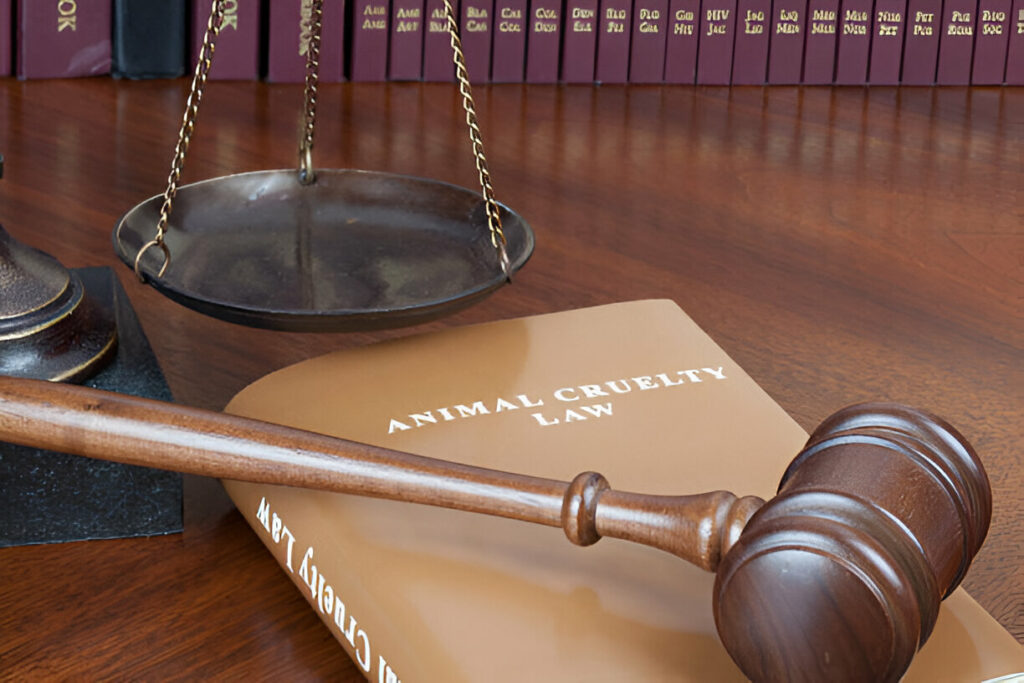In recent years, the field of animal law has garnered significant attention, evolving from a niche area to a key facet of legal advocacy that addresses the complex needs of non-human clients.
The legal protection afforded to animals is an increasingly critical topic in legal circles, akin to the importance of protecting vulnerable groups in human society.
This post explores the intricacies of animal welfare laws, the progress in rights cases, and the growing recognition of legal standing for animals.
Understanding Animal Law
Animal law encompasses a variety of legal disciplines, including environmental law, criminal law, and torts.
The primary goal is to ensure the welfare and protection of animals, advocating for their wellbeing and addressing issues such as cruelty, habitat protection, and the rights of animals in captivity and the wild.
Welfare Laws: The First Line of Defence
Animal welfare laws form the bedrock of legal protections for animals – these laws typically define the minimum standards of care for animals in various settings, such as farms, zoos, and domestic environments.
For example, the Animal Welfare Act in the United States sets specific requirements for housing, feeding, and medical care for animals in research and exhibition. Similar legislation exists globally, reflecting a universal commitment to prevent animal abuse and neglect.
However, the enforcement of these laws often presents challenges. Understaffing, underfunding, and varying degrees of rigour in the laws across different jurisdictions can lead to inconsistent outcomes.
Consequently, advocacy plays a crucial role in not only shaping these laws but ensuring they are adequately enforced.
Rights Cases: Expanding Horizons
Beyond welfare, there is a growing body of cases that explore the rights of animals. Landmark cases in countries like Argentina have recognised the legal personhood of non-human primates, arguing that creatures like chimpanzees have complex emotional and social capacities that warrant rights similar to humans.
In India, dolphins have been recognised as non-human persons, with an outright ban on their captivity for entertainment purposes.
These cases represent a significant shift in the legal perception of animals, moving beyond viewing them merely as property to recognising their intrinsic value and rights as sentient beings.
This shift not only reflects ethical progress but also prompts a re-evaluation of how laws interact with and protect non-human life.

Legal Standing: A Crucial Milestone
One of the most significant developments in animal law is the recognition of legal standing for animals. Legal standing allows animals, or advocates representing them, to be considered part of a legal case, traditionally reserved for humans.
This concept challenges traditional legal boundaries and opens new avenues for litigation that can protect and enhance animal welfare.
The Role of Lawyers in Animal Advocacy
Just as child protection lawyers play a critical role in safeguarding the rights and wellbeing of children, lawyers specialising in animal law advocate for the needs and rights of non-human clients.
They navigate complex legal landscapes to ensure that animals are not overlooked in the legal system, pushing for reforms and engaging in public education to raise awareness about the importance of animal welfare and rights.
Challenges and Future Directions
Despite these advancements, animal law faces several challenges. The biggest is the variation in how animals are valued legally from one region to another, affecting everything from legal outcomes to public perceptions.
The future of animal law will likely involve a push for more unified global standards and practices that recognise the importance of all sentient beings in the eyes of the law.
In conclusion, as our understanding of animal cognition and social structures deepens, so too does the moral imperative to revisit and revise the laws that govern their treatment.
The advocacy for non-human clients is not just about legal duty; it’s about aligning our legal systems with the broader values of justice and compassion that define civilised society. This evolution in animal law not only benefits animals, but enriches our humanity as well.Top of Form












